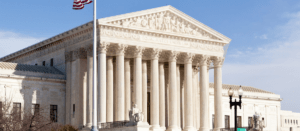Last week the 74th meeting of the United Nations General Assembly (UNGA) met in New York City. President Trump, Vice President Pence, Secretary of State Pompeo and HHS Secretary Azar gave magnificent speeches, including on the issues of religious freedom, the value of family and life, the importance of nationalism, and economic empowerment.
CWA was at UNGA representing your voice through the media, at the U.S. Mission to the United Nations, and with foreign delegations. Our CEO and President Penny Nance was honored to meet with Egyptian President Abdel Fattah el-Sisi, as part of a small group of evangelical leaders, to discuss religious freedom in Egypt as well as the important issue of women’s rights and wellbeing.
The group thanked President el-Sisi for his work in Egypt to improve religious tolerance and equality for Christians, such as building Nativity of the Christ Cathedral (the largest cathedral in the region, and it is next to a mosque of equal size to symbolize tolerance and equality), rebuilding Christian churches demolished by the Muslim Brotherhood, and reforming religion textbooks for schools to increase tolerance and understanding between Muslims and Christians, as well as remove any extremist sections.
In addition, Penny thanked him for highlighting the necessity of education and training for women and girls in Egypt, as well as reducing barriers to their wellbeing such as domestic violence and harmful cultural practices.
President el-Sisi’s speech in March for this year’s Egyptian Women’s Day outlined seven points of engagement his administration plans to take on behalf of women. He has committed to address issues including women’s access to the marketplace, education, the problem of illegal underage marriage, gender-based violence and harassment, and to improve divorce laws so they do not put women and children in an “inadequate” situation.
CWA is grateful for increased leadership roles in Egypt for women; however, as women struggle for equal justice and opportunities in Egypt, there is still more work to be done. President el-Sisi appointed the first two female governors ever in Egypt, the second one being a Christian. Manal Awad Mikhail is the first Christian woman in Egypt ever to be governor. Prime Minister Mostafa Madbouly, appointed by Sisi in June 2018, has selected a historic number of eight women to his cabinet. There is also an effort to increase women’s position and rank in the judicial system with 16 female judges being promoted to higher level positions.
President el-Sisi has also strived to decrease female genital mutilation and cutting (FGM/C). While FGM/C has been illegal in Egypt for over 10 years, since 2008, it is still widely practiced. This is a stubborn cultural issue with over half of Egyptians, both men and women, in support of the practice. Egypt’s National Council of Women, religious leaders, Islamic scholars, and the government are working with President el-Sisi to delink FGM/C from religious practices saying it is religiously forbidden.
President el-Sisi made FGM/C a criminal act in 2016, going a step further than the 2008 law, prior to his coming to power, that made it illegal. His criminalizing FGM/C is a bold move on a sensitive issue with deep cultural roots.
The number of girls in Egypt undergoing FGM has declined some over the last 12-15 years, but the number who experience this harmful cultural practice is still shocking:
- The number decreased from 97% cut in 2005 to 92% in 2015 of ever-married women ages 15-49 (a woman qualifies as “ever-married” if she has been married at any time in her life, even if she currently is not married)
- There was more improvement in girls ages 0 to 17 , according to a secondary analysis (analysis of data already collected for a different purpose) of the data, with a drop from 69% in 2005 to 55% in 2015(14% decrease) of girls who go through or are likely to go through FGM/C before turning 18.
In his Egyptians Women’s Day speech, President el-Sisi acknowledged that underage marriage is an act of violence towards girls and hinders their education. The legal age of marriage in Egypt is 18; however, 22% of girls are married before 18, and 15% are married before the age of 16. Some of these are “temporary marriages” to visiting foreigners, mostly from the Gulf states. These temporary marriages are often a cover for prostitution.
CWA also thanked President el-Sisi for Egypt joining the U.S. and 19 other nations in a joint statement calling on the UN to stop using abortion-related terms in UN resolutions, negotiations, and other documents. Terms like “sexual reproductive health” (SRH) or “sexual reproductive rights” are ambiguous abortion-related terms which mask the promotion of legalized abortion. Here is an excerpt from the joint statement read by Secretary Azar:
We believe that health of women, men, children and adolescents supports and improves the overall health of our families and communities, and that the family is the foundational institution of society and thus should be supported and strengthened…
We do not support references to ambiguous terms and expressions, such as sexual and reproductive health and rights in U.N. documents, because they can undermine the critical role of the family and promote practices, like abortion, in circumstances that do not enjoy international consensus and which can be misinterpreted by U.N. agencies.
Such terms do not adequately take into account the key role of the family in health and education, nor the sovereign right of nations to implement health policies according to their national context. There is no international right to an abortion and these terms should not be used to promote pro-abortion policies and measures.
CWA was glad to be your voice as Penny met with President el-Sisi of Egypt. She thanked him for his steps to increase opportunities and rights for women and girls, as well as religious freedom for Christians. We encouraged him to continue his progress on these issues and hope to be helpful in the future.





